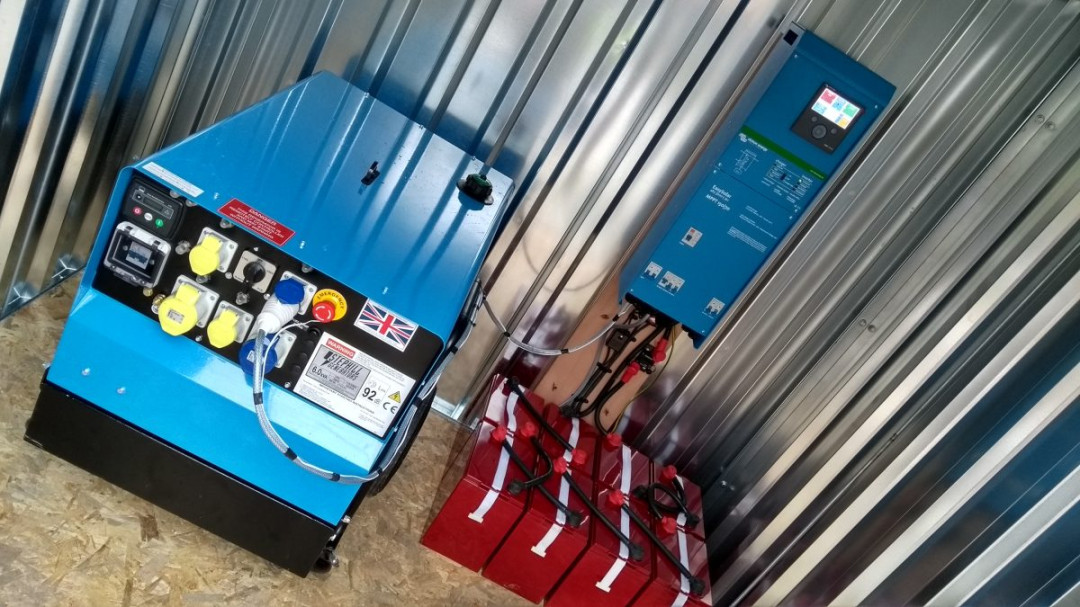Introduction
Living off the grid is becoming an increasingly popular choice for many people. Whether you’re seeking a sustainable lifestyle, looking to escape the rising cost of energy, or simply desire self-sufficiency, an off-grid power system can be a game-changer. The UK, with its unpredictable weather and varying energy demands, presents unique challenges and opportunities for those venturing into this realm. Let’s delve into the world of off-grid power systems and explore the key factors to consider when building your own energy-independent haven.
Lighting: The Heart of Your Off-Grid Home

Proper lighting is essential for comfort and safety in any home, but it’s especially crucial when relying on off-grid power.
LED Lights: Your Energy-Efficient Companions
LED lights are the undisputed champions of energy efficiency. They consume significantly less power than traditional incandescent or fluorescent bulbs, extending the life of your batteries and reducing the strain on your power system.
Solar-Powered Lighting: Harnessing Nature’s Energy
For those seeking maximum self-sufficiency, solar-powered lights are a fantastic option. These lights come in various styles, from outdoor spotlights to indoor lamps, and can provide ample illumination without draining your battery bank.
Color Psychology: Enhancing Your Off-Grid Living Space
While color choice might seem like a purely aesthetic decision, it can significantly impact your mood and overall well-being.
Light and Airy: Creating a Spacious Feel
Opt for lighter colors like white, cream, or pale blues to make your off-grid home feel larger and brighter. These colors reflect natural light, enhancing the sense of space.
Warm and Inviting: Cozying Up Your Off-Grid Abode
If you prefer a cozier atmosphere, consider warmer tones like earthy browns, deep reds, or soft yellows. These colors can create a welcoming and comforting ambiance.
Furniture: Practicality Meets Style
Choosing the right furniture for your off-grid home is a balancing act between comfort, durability, and practicality.
Multi-Functional Furniture: Maximizing Space
To make the most of your limited space, invest in furniture that serves multiple purposes. For example, a sofa bed can provide both seating and sleeping accommodations.
Lightweight and Portable: Embracing Flexibility
Opt for lightweight furniture that’s easy to move around, especially if you plan to rearrange your space frequently.
Materials: Sustainable Choices for Your Off-Grid Home
Selecting eco-friendly materials is crucial for minimizing your environmental impact and creating a healthy living space.
Recycled and Upcycled Materials: Giving New Life to Old Things
Incorporate recycled or upcycled materials into your home decor to reduce waste and add character to your space.
Natural Materials: Connecting with Nature
Using natural materials like wood, stone, and wool can create a warm and inviting atmosphere while also promoting better indoor air quality.
Accessories: Adding Personal Touches
Accessories can transform your off-grid home into a personalized sanctuary.
Plants: Bringing Nature Indoors
Indoor plants not only add beauty but also improve air quality and create a sense of tranquility.
Textiles: Creating a Cozy Atmosphere
Soft blankets, rugs, and curtains can add warmth and comfort to your off-grid space.
Layout: Optimizing Your Off-Grid Living Space
Effective space planning is essential for maximizing comfort and functionality in an off-grid home.
Open Floor Plans: Creating a Sense of Spaciousness
An open floor plan can make your home feel larger and brighter, especially if you have limited square footage.
Dedicated Workspaces: Maintaining Productivity
If you work from home, create a designated workspace to help you stay focused and productive.
Views: Maximizing Your Connection to Nature
One of the greatest benefits of off-grid living is the opportunity to immerse yourself in nature.
Large Windows: Letting the Outdoors In
Maximize natural light and enjoy stunning views by incorporating large windows into your home design.
Outdoor Living Spaces: Extending Your Living Area
Create an outdoor living space where you can relax and enjoy the beauty of your surroundings.
Conclusion
Embarking on an off-grid lifestyle requires careful planning and consideration. By focusing on energy efficiency, sustainable materials, and thoughtful design, you can create a comfortable and self-sufficient home. Remember, the key to successful off-grid living is finding the right balance between practicality and aesthetics.
FAQs
1. How much does it cost to install an off-grid power system in the UK?
The cost of an off-grid power system varies depending on the size of your home and your energy needs. Factors such as battery capacity, solar panel size, and inverter type will also influence the overall price.
2. What is the best off-grid power system for a small cabin?
A small cabin can typically be powered by a relatively compact off-grid system. Consider a combination of solar panels and a battery bank to meet your basic electricity needs.
3. Can I use appliances like a washing machine and dryer on an off-grid power system?
While it’s possible to use appliances like washing machines and dryers on an off-grid system, it’s important to carefully consider your energy consumption. These appliances can be power-hungry, so you may need a larger system to accommodate them.
4. How do I maintain my off-grid power system?
Regular maintenance is essential for the longevity of your off-grid power system. This includes cleaning solar panels, checking battery levels, and inspecting wiring and connections.
5. What are the benefits of living off the grid?
Living off the grid offers several benefits, including reduced energy costs, decreased environmental impact, and greater self-sufficiency. It also provides an opportunity to connect with nature and enjoy a quieter, more peaceful lifestyle.
Note: To optimize your article for SEO, consider incorporating relevant keywords throughout the text, such as “off-grid UK,” “sustainable living,” “renewable energy,” and “energy independence.” You can also use header tags (H2, H3) to structure your content effectively and improve readability.